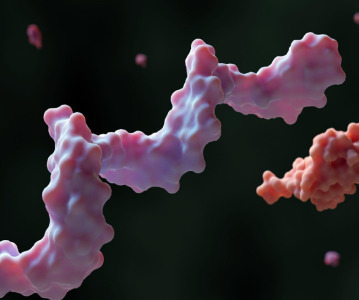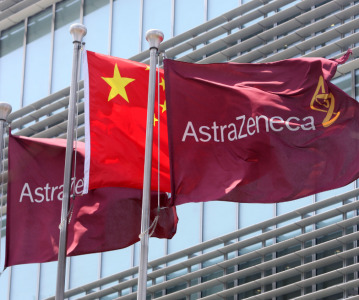Major changes for bio supply forecast in 2018 by bioLIVE

Integration of supply chain a critical issue as industry globalises, with a resurgence in European manufacturing and biotech markets forecast.
Industry experts from bioLIVE – the new UBM biomanufacturing and bioprocessing event taking place next year in Madrid (9-11 October) – predict that 2018 will usher in a new age of increased integration and collaboration across the large and small molecule supply chain. Next year will also see a continued rise in the European bioprocessing and biomanufacturing sectors, along with a resurgence in European biotechs.
Experts at UBM have been studying market developments ahead of the new event’s launch, and one of the key factors identified is the relative states of maturity of the supply chains. The small molecule space has nearly 50 years of history behind it, coupled with a highly mature contract services sector, whereas for newer biologicals, such as cell and gene therapies, the potential development and commercialisation challenges that lie ahead are only starting to emerge.
“One of the consistent problems in bio for the last year has been getting the right level of skilled workers, as well as building a global and stable partners base. This is an area that small and large molecule will likely collide in 2018 – particularly as more CDMOs, and pharma companies begin to diversify their capabilities,” commented Rutger Oudejans, Brand Director Pharma at UBM.
Overall, the biologics market in Europe is experiencing fairly robust growth and there is a resurgence of activity in the European bio hubs, but the supply chain will be a key area of focus to ensure that products make it to market quickly and securely.
Another consideration is that, at present, the US and Europe dominate manufacturing, but China and India are widely acknowledged to be fast growing bio markets albeit from a small base. As seen with small molecules 30 years ago, biosimilars development will gradually move East. However, this will happen on an even faster timeline due to the greater sizes of the domestic markets here now – which are far more developed than when the generics industry was evolving.
UBM research amongst the potential supplier base is showing that 2018 will be a critical year for the bio industry. There is a clear duality in the market as the industry tries to incorporate increasing demand for biosimilars (often large mammalian capacity demand), coupled with the unique development challenges of the newer smaller cohort drugs – single-use tech is another major growth area. Collectively, this means there are potentially two distinct types of supply chain developing – and in multiple geographic locations. And that is without considering the differences in upstream and downstream processing.
Next year, there is likely to be an increased internationalisation of the market as Asian companies will move to work with more western partners, and in- and out-licensing of newer more efficient technologies will proliferate to help lower overall costs.
“In the past few years, we have seen the supply chains of bio and small molecule coming together, particularly as you have seen more and more CDMOs transferring their skills into bio. There is a growing issue of availability of resource, and undoubtedly there are learnings and contacts that can be shared, since there is a global shortage of skills and manufacturing. For bioLIVE, this is a significant opportunity. We will need to pull in our global partners from China and India to next year’s event, but also centralise the European and US bio markets, which are still somewhat disparate. By mirroring what has already been achieved for small molecules we will create a hub greater than the sum of its parts, as we connect across geographies and bring together companies from both the processing and manufacturing supply chain. It’s a very exciting time for the industry, as next year we foresee a more mature supply chain beginning to take hold,” added Oudejans.
In Europe, CMOs are predicted to align their strategies to not only address capacity, but also the greater complexity of products, supplier risk and the adoption of advanced biomanufacturing technologies.
Finally, 2018 – as highlighted by the CPHI Annual Report – could also be the year we see the development of new, bio specific excipients. These new excipients are likely to be developed in conjunction with a bio active and there will be a focus on characterising excipients by surface interaction. However, biosimilars are not predicted to drive down costs of these new excipients for biologics, since biologics will still have superior pharmaceutical equivalence.
Related News
-
News CPHI Online Trend Report – 2025 Pharma Packaging Prospects
The pharmaceutical packaging market has seen marked shifts in innovations, priorities, and focus over the last few years. With the rise of hit drugs like GLP-1 agonists and biologics requiring specialised packaging considerations, the strain of meeting... -
News Google-backed start-up raises US$600 million to support AI drug discovery and design
London-based Isomorphic Labs, an AI-driven drug design and development start-up backed by Google’s AI research lab DeepMind, has raised US$600 million in its first external funding round by Thrive Capital. The funding will provide further power t... -
News AstraZeneca to invest US$2.5 billion in Beijing R&D centre
Amid investigations of former AstraZeneca China head Leon Wang in 2024, AstraZeneca have outlined plans to establish its sixth global strategic R&D centre in China. Their aim is to further advance life sciences in China with major research and manufact... -
News US FDA adds haemodialysis bloodlines to devices shortage list
On March 14, 2025, the US FDA published an open letter to healthcare providers citing continuing supply disruptions of haemodialysis bloodlines, an essential component of dialysis machines. -
News Women in Pharma: Manufacturing personal and team success
Our monthly Women in Pharma series highlights the influential lives and works of impactful women working across the pharmaceutical industry, and how the industry can work towards making the healthcare industry and workplace more equitable and inclusive... -
News Pfizer may shift production back to US under Trump pharma tariffs
At the 45th TD Cowen annual healthcare conference in Boston, USA, Pfizer CEO Albert Bourla outlined the potential for Pfizer to shift its overseas drug manufacturing back to the US as pharmaceutical industry players weigh their options against Presiden... -
News Experimental drug for managing aortic valve stenosis shows promise
The new small molecule drug ataciguat is garnering attention for its potential to manage aortic valve stenosis, which may prevent the need for surgery and significantly improve patient experience. -
News Women in Pharma: Connecting accessible pharma packaging to patients – a Pharmapack Special
Throughout our Women in Pharma series, we aim to highlight how CPHI events encourage discussions around diversity, equity, and inclusion initiatives in the pharmaceutical industry.
Recently Visited
Position your company at the heart of the global Pharma industry with a CPHI Online membership
-
Your products and solutions visible to thousands of visitors within the largest Pharma marketplace
-
Generate high-quality, engaged leads for your business, all year round
-
Promote your business as the industry’s thought-leader by hosting your reports, brochures and videos within your profile
-
Your company’s profile boosted at all participating CPHI events
-
An easy-to-use platform with a detailed dashboard showing your leads and performance
.png)






